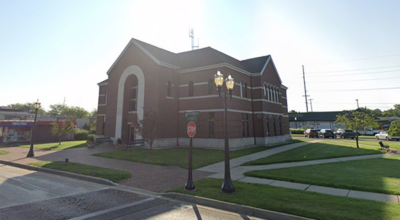Obama curbs federal prosecution of marijuana
Published 9:18 am Tuesday, October 20, 2009
By JESSICA SIEFF
Niles Daily Star
Fourteen states, including Michigan, have already been dealing with the issues both good and bad that surround legalized marijuana, used for medicinal purposes.
Now, those states are getting a show of support from federal authorities as the Obama administration announced Monday that federal prosecutors wouldn’t go after those using or distributing the still illegal drug when used as a means of medication under state laws.
It was a drastic move away from the previous administration, giving those who – as in Michigan – have received medical marijuana cards approving their use of the drug a bit of relief but drawing criticism from those in opposition who believe that the move could send a mixed message.
Michigan adopted the law just this year and authorities say that they have yet to see any major backlash.
But there are still challenges.
“Historically the federal cases were more substantial,” said Lt. Michael Brown of the Michigan State Police Niles Post.
Locally, Brown said, there have still been instances of individuals in possession of or distributing marijuana illegally but he could not single out any particular cases in which a medical marijuana defense was used.
Unlike some other states, such as California, Michigan has yet to see an uptic in pot shops. Though some of those stores operate under state guidelines, some reports say that authorities know that others do not.
In Michigan, the Southwest Enforcement Team is a multijurisdictional team of law enforcement officers focused on narcotics enforcement operating in Southwest Michigan.
Lt. Wayne Edington, Task Force commander, said right now, the situation is “relatively stable.”
Most of those issued medical marijuana cards are operation in their usage and growing of marijuana plants under the state guidelines.
“Those who are in it strictly for the profit,” he said. “They’re going to try and grow additional plants.”
One challenge facing authorities, Edington said, is an inability to identify approved medical marijuana users before they get to the front door.
“That’s been the biggest inconvenience,” he said.
Authorities who get tips that an individual may be using, growing or distributing marijuana are unable to identify by name, address or any other form of identification whether or not that individual has been approved by the state.
“The only thing we can do is physically examine the card,” Edington said. In order to do that, officers still must knock on the doors of those suspects.
“It would be nice if we could avoid that,” he said.
Edington said he’d like to see a connection with the Department of Community Health with access to those card numbers in order to avoid making such visits.
Whether or not the pull back of federal prosecution will encourage or discourage those interested in marijuana for the profit, remains to be seen.
For now, those using the drug for medicinal purposes, following state guidelines can feel some sense of ease that the next knock at the door won’t be that of a federal agent.






